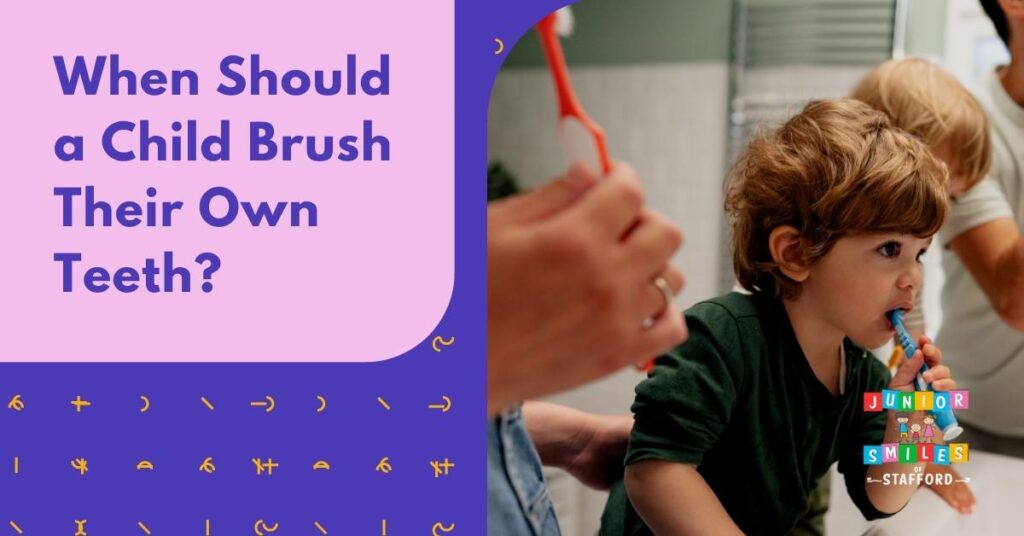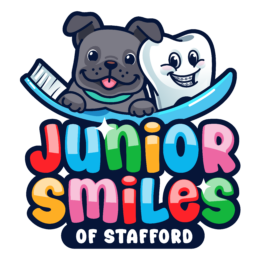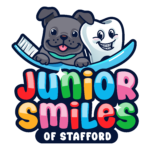At What Age Should a Child Brush Their Own Teeth?

When your child’s first tooth comes in, you’re overjoyed to start them on a regular brushing schedule. And it’s only natural that you want your children to take an interest in maintaining good dental hygiene as they become older, but at what age should they begin to clean their own teeth?
You should make a mental note that brushing is a skill before you claim your youngster understands how to do it. Learning and mastering it takes time and effort, just like any other talent. On top of that, little kids just don’t yet have the fine motor skills necessary to use a toothbrush and floss correctly. Moreover, remember that kids shouldn’t wash their teeth alone until they’re at least eight or ten years old, and parents should stay close by until they’re twelve.
From the fundamental abilities your kid must develop before they can brush their teeth independently to the specific kind of toothpaste they should use, this article will provide you with all the information you need to keep up with your child’s dental regimen.
When Should a Child Start Brushing Their Own Teeth?
Generally, children develop the necessary motor skills to brush their teeth effectively around the age of 6. However, it’s essential to supervise and guide them through the process to ensure they adopt the correct techniques. Before reaching this stage, parents play a crucial role in establishing a solid foundation, starting from brushing baby’s gums to gradually introducing practices like brushing your toddler’s teeth and using baby mouthwash. Remember, even after children start brushing their teeth independently, periodic monitoring is key to ensure they maintain good oral hygiene habits, such as brushing teeth for the recommended duration and using the correct amount of toothpaste. Encouraging these practices early on sets the stage for a lifetime of healthy dental habits, from when to brush your baby’s teeth with toothpaste to understanding when you start flossing your toddler’s teeth.
Essential Skills Before Your Child Can Brush Their Own Teeth
Ensuring that your child is ready to brush their own teeth involves more than just reaching a certain age. It’s about making sure they’ve developed specific skills and understanding. Here’s a breakdown of essential skills your child should have before taking on this important responsibility:
Understanding the Importance of Oral Hygiene
Before a child can effectively brush their own teeth, they need to understand why oral hygiene is important. This involves teaching them about the consequences of poor dental care, like cavities and gum disease. Encouraging questions and discussions about dental health helps reinforce the significance of regular brushing and flossing.
Motor Skills for Brushing
Developing the motor skills necessary for effective brushing is crucial. Children must be able to hold the toothbrush comfortably and maneuver it around their mouth to reach all areas of their teeth and gums. Practice sessions with a parent can help refine these skills, ensuring they cover every surface of each tooth.
Applying the Right Amount of Toothpaste
Knowing how much toothpaste to use is an important skill. Children should learn that only a pea-sized amount of toothpaste is needed for effective cleaning. Teaching them this early on prevents the misuse of toothpaste and ensures they don’t ingest excess fluoride.
Mastering the Two-Minute Rule
Understanding that brushing should last for two minutes is key. Many children rush through brushing, so it’s important they learn the value of taking their time. Using a timer or a song that lasts two minutes can make this practice both fun and habitual.
Recognizing When Teeth are Clean
Finally, children should learn to recognize the feeling of clean teeth. This includes understanding that teeth should feel smooth and free of food particles. Regular dental check-ups and positive reinforcement when they do a good job can help instill this awareness.
Developmental Timeline for Kids’ Oral Care
Oral care for children is a journey that evolves as they grow, with each stage requiring specific attention and practices. This developmental timeline for kids’ oral care begins right from infancy. Initially, it’s all about brushing newborn gums gently with a soft cloth, which gradually transitions to brushing baby’s gums as they grow. As soon as the first tooth appears, typically around six months, parents should start brushing baby teeth with toothpaste, using a rice-sized smear of fluoride toothpaste.
Around the age of two, when children have more teeth, it becomes important to focus on how to brush a baby’s teeth properly and to start considering when to start flossing your toddler’s teeth.
As they reach school age, around six years old, kids develop the motor skills necessary for brushing their own teeth, although supervision is still advised. This is also the period when children should start using mouthwash for toddlers, under parental guidance. The timeline continues with teaching children how to teach a child to spit out toothpaste effectively and safely around this age.
Around the age of six or seven, children can typically handle flossing on their own, marking an important milestone in their oral hygiene independence. This period is crucial for establishing lifelong habits, and the importance of twice-daily brushing. By the time kids reach the end of primary school, they should have mastered the routine on their own, and their abilities should start to grow with each passing year. Make sure your child uses an electric toothbrush and water flosser every day, praise and encourage them often, and set a good example yourself as a parent by brushing and flossing your own teeth twice a day.
How to Teach a Child to Brush Their Own Teeth
Teaching a child to brush their own teeth is a vital part of their growth and independence. It’s about more than just handing them a toothbrush; it involves patience, demonstration, and encouragement. Here are several tips to help your child learn this essential skill:
Lead by Example
Children learn best by imitating adults, so make sure they see you brushing your own teeth regularly. Brush together with your child, showing them the proper technique and making it a fun, shared activity. This not only teaches them the correct way to brush but also establishes it as a regular part of the daily routine.
Use Kid-Friendly Tools
Invest in a child-sized toothbrush that is easy for small hands to hold and maneuver. Choose toothpaste with flavors that appeal to children, making the experience more enjoyable for them. Also, consider using a timer or a song that lasts two minutes to ensure they brush for the appropriate amount of time.
Break Down the Process
Teach brushing in small, manageable steps. Start with how to apply toothpaste onto the brush and then move on to brushing each section of the mouth. Reinforce the idea of gentle circular motions on each tooth and the importance of not forgetting the back teeth.
Encourage Rinsing and Spitting
Learning to rinse and spit is an important part of brushing. Teach your child to swish water in their mouth gently and then spit it out. This not only removes residual toothpaste but also helps clear loosened food particles and bacteria.
Incorporate Flossing Early
Introduce flossing as a regular part of the dental care routine. Show them how to gently insert the floss between teeth and move it up and down against each tooth. Emphasize that flossing reaches areas where a toothbrush can’t, making it essential for complete oral care.
Allow Them To Handle It
Babies and toddlers may even reach for the toothbrush and attempt to clean their own teeth. For their own sense of independence, it’s fine to let kids do this every once in a while, but be sure to brush your teeth well afterward. It’s wonderful that your child is taking an interest in seeing the dentist, but remember that kids their age still need you to keep an eye on their oral hygiene routine.
FAQs About Kids Brushing Their Own Teeth
How Long Should Kids Brush Their Teeth?
Kids should brush their teeth for two minutes, twice a day, as recommended by dental professionals. This duration ensures that they clean all areas of their mouth thoroughly, including the back teeth, which are often missed. It’s helpful to use a timer or play a short song to make the two-minute duration more engaging for children, thereby promoting better dental hygiene habits from an early age.
When Should Kids Start Flossing?
Kids should start flossing as soon as they have two teeth that touch each other, which typically occurs around the age of two to three years. Flossing is crucial for removing plaque and food particles from between the teeth where a toothbrush can’t reach, thus preventing cavities and gum disease.
When Can Kids Use Regular Toothpaste?
Kids can start using regular toothpaste once they are able to spit it out effectively, usually around the age of three to six years. Until then, it’s advisable to use a fluoride toothpaste designed for young children in a minimal amount. The transition to regular toothpaste should be gradual and supervised, ensuring the child doesn’t swallow large amounts of fluoride, which can be harmful.
Are You Supposed to Spit Out Toothpaste?
Yes, it is recommended to spit out toothpaste after brushing to avoid ingesting fluoride, which can be harmful in large amounts. While fluoride is beneficial in strengthening teeth and preventing cavities, swallowing too much of it, especially for young children, can lead to dental fluorosis.
Secure Your Child’s Oral Health with Junior Smiles
Teaching your child the proper techniques for brushing and flossing their teeth is a vital step in ensuring their long-term oral health. From understanding the right amount of time to brush to knowing when to start flossing and transitioning to regular toothpaste, these practices lay the foundation for a lifetime of healthy smiles. Remember, patience and consistency are key in instilling these habits, and it’s always beneficial to seek guidance and support from dental professionals.
When it comes to your child’s dental health, trust the experts at Junior Smiles of Stafford. Our team of compassionate and skilled professionals specializes in pediatric dentistry, ensuring that your child’s oral health journey is positive and effective. Whether it’s their first dental visit, a routine check-up, or specific dental needs, Junior Smiles of Stafford is here to provide the highest quality care in a welcoming and child-friendly environment.

